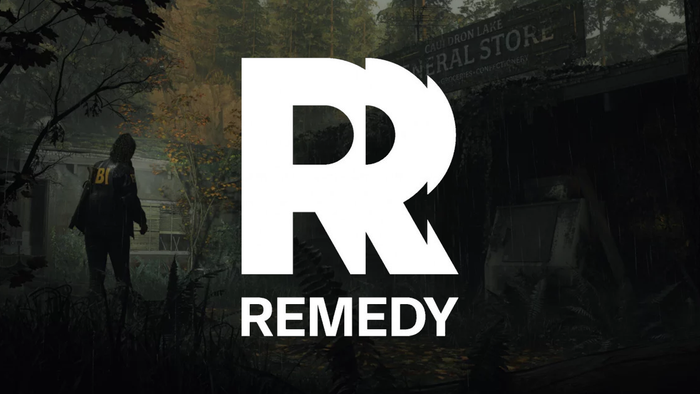Opinion: You Are Responsible For Your Own Career
What are the six key things you can do to advance your career in the game business? From getting good game credits through efficient networking, Divide By Zero CTO Joe Ludwig provides practical advice in this handy opinion piece.

[What are the six key things you can do to advance your career in the game business? From getting good game credits through efficient networking, Divide By Zero CTO Joe Ludwig provides practical advice in this handy opinion piece.] Advancing your career is your responsibility. Maybe this is obvious to everyone, but it’s something I’ve really only started paying any attention to over the past few years. In the game industry this is even more important. Game companies disappear on a regular basis and you can be looking for work very suddenly. Not everything related to your career development is in your control. Chances are you don’t get to pick what projects your company green lights. You also rarely get to choose when you are laid off. Fortunately there are several things you can control, so if you focus on these items you will be better off than someone who just goes where the wind takes them. Credits Matter As an industry, we care a lot about what games you’ve shipped. It is difficult for many people to get a job in the industry if they haven’t shipped anything, which is why so much energy is spent on telling people how to “break in.” Once you are in you should ship as many titles as possible. Working on a game that doesn’t ship is better than nothing, but is not nearly as significant. This is one area where MMO developers get screwed. It takes at least three and possibly as long as six years to build an MMO. In that same amount of time a console game developer could ship 2-4 titles. Expansion packs can help on the MMO side, so if you are at a company that puts out expansion packs, make sure you’re listing those on your resume. Regular free content updates (like the monthly patches on Pirates Of The Burning Sea) should count, but that might be harder to convince people of. I suspect this is one reason for the mass turnover that happens whenever an MMO launches. People want to get started on their next title as soon as possible. You can improve your title count by picking what projects you work on carefully. All other factors being equal, you should prefer the project that is closer to shipping. Be sure to make your own assessment of this. People inside a game team rarely have an objective view of how far they are from done. Another thing to consider when choosing a project is how likely the game is to actually ship. Games get canceled all the time, and you don’t want that to happen to your game after you’ve spent three years on it. In my ten years in the industry I’ve had two projects cancelled (Middle-Earth Online and Delta Green), shipped one PC CD-ROM game, and shipped one MMO. I suspect six to eight titles is more typical for that amount of time in the industry. Success Matters While the sheer number of titles on your resume is important, the success level of those titles is also very important. If you have an opportunity to work on a mega hit (like GTA, Rock Band, Bioshock, Halo, Half-Life, etc.) you should take it. Getting one of these on your resume is worth at least 5 other titles. Everybody thinks that the success of the mega hit will rub off on whatever the people from that team works on next. Ending up on a title like this requires a lot of luck. By the time it’s obvious that a game is going to be a hit the team is probably fully staffed. What you need to do is end up on the team that nobody knows will be huge, and I can’t really help you with that. Advancement Matters You should have a goal for where you want your career to be several years down the road. That doesn’t always mean management; becoming a hard-core specialist in some area is also perfectly valid. It’s important that every job or project change you make take you a step down this road. “Taking a step” means an increase in compensation, responsibility, or visibility. Usually those steps are accompanied by a loftier job title. This is something programmers have trouble with. In other disciplines the draw of a decent salary pulls people naturally toward positions that pay better. Programmers usually make good money even if they aren’t leads, so they have to be more explicit about servicing this need. Insist on regular salary increases even if you don’t need them. Putting the extra money in savings will help you out the next time you are between jobs and maybe even enable you to start your own thing if that’s one of your goals. The key to advancement in your career is to make sure the people above you in the hierarchy know where you want to go. Usually they’ll ask you, but if they don’t, make a point of telling them anyway. That way they have you in mind when they are thinking about the future needs of the company. Visibility Matters Gaining visibility is a good thing. There are three kinds of visibility I’m talking about here: visiblity to partners, visibility to customers, and visibility to peers. Visibility to partners means that your position involves regular interactions with your company’s business partners. That could mean the publisher, the IP holder, or outside vendors. Visibility to customers means contact with fans and press that is targeted at fans. Visibility to peers means that you have regular contact with other people across the industry. All three of these are important to have. With respect to your career, being visible to partners is important because it allows people outside of your company to learn what it’s like to work with you. Most of the partners your company has also work with other game companies, so this sort of contact will allow your reputation to spread. These contacts are also likely to be valuable at your next job, so make sure that you keep in touch with the people you work with at your company’s partners. Depending on the kind of games you make, visibility to customers may be easy to accomplish. Many MMO companies allow staff to talk directly to fans (or customers if the game is launched), which can build a reputation for that staff member within the community surrounding that game. Unless you are very well known across a broad set of potential customers, customer visibility isn’t likely that this kind of exposure will do much for your career. On the other hand, knowing your customers is often good for helping you do your job better. The visibility that is most likely to help your career is visibility to your peers in the industry. The three best ways I’ve found to get this kind of exposure are to speak at conferences, maintain a blog, and network. These are things that your company is not really going to be able to help you with, so expect to pursue peer visiblity on your own. Peer visibility is incredibly helpful when it comes to finding another job. Many jobs are never listed publicly so you will only hear about them if you know somebody. You are also far more likely to get an interview if the person reading your resume has read something on your blog or seen your name on the speaker list for the last conference he was at. Reputation Matters We work in a very small industry with high turnover. Chances are good that someone you work with today will end up at a company you’re applying to. Chances are even better that someone you work with today will be looking for work while you’re on a team with an opening. You should do everything you can to make sure that other person wants to work with you again. Don’t be the jerk that nobody likes. Your Happiness Matters If all the advice above seems rather self-serving, that’s because it is. Nobody cares as much about your career as you do. Your manager is trying to keep his team productive while juggling the needs of his own career. The top brass at your company is trying to keep the company in the black, which often means keeping expenses under control. Both of these groups have to balance your personal career needs with those of a larger group of people and those of the company itself. That’s why it’s so important that you are taking care of your own career. On the other hand, blind ambition is not the key to happiness. Enjoying what you’re working on is very important. That’s what gets most of us up in the morning. Happy people are also far more productive and less likely to burn out than merely ambitious people. Your personal quality of life issues are important to balance against ambition. For you it could be where you live, what kind of games you work on, how much time you have for family and friends, what your work environment is like, or the length of your commute. You are the only one who can set the balance between career advancement and what makes you happy. All I suggest is that you make deliberate decisions instead of putting up with whatever happens by chance. [Joe Ludwig is the CTO of Divide by Zero Games. Prior to joining Divide by Zero in 2008, Joe spent nine years at Flying Lab Software where he worked on several projects, but recently on Pirates of the Burning Sea.]
Read more about:
2008About the Author(s)
You May Also Like













